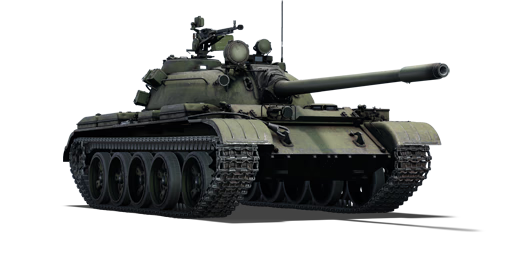The T-55A is the second variant of the T-55 main battle tank family. It was manufactured from 1963 to 1981 and, in comparison to the previous variant, has a new anti-radiation lining as well as a full PAZ/FVU chemical filtration system. The use of plasticized lead sheeting for antiradiation protection was one of the most significant internal changes. To accommodate the new material, the driver's hatch was enlarged, as were the combings over the commander's and loader's hatches. The previous hull machine gun mount was removed to allow for six additional 100 mm main armament rounds. Since 1970, all T-55A variants have had a new modification that allows the 12.7mm DShK heavy machine gun to be mounted on the roof of the turret.
Introduced in Update 1.69 "Regia Aeronautica", the T-55A has a similar armour layout, comparable to that of the late variants of the T-54 main battle tanks. Due to the more powerful engine, the mobility is slightly improved, allowing for a higher top speed despite the minor weight increase. However, it now has access to armour-piercing fin-stabilised discarding sabot (APFSDS) ammunition, which can penetrate 335 mm of armour at point-blank range. Given the high velocity of this ammunition, players can engage enemies more easily over long distances. Finally, it has a newly developed two-plane fully automatic stabilization system for its main armament, which allows for quick response and accurate firing while moving.















